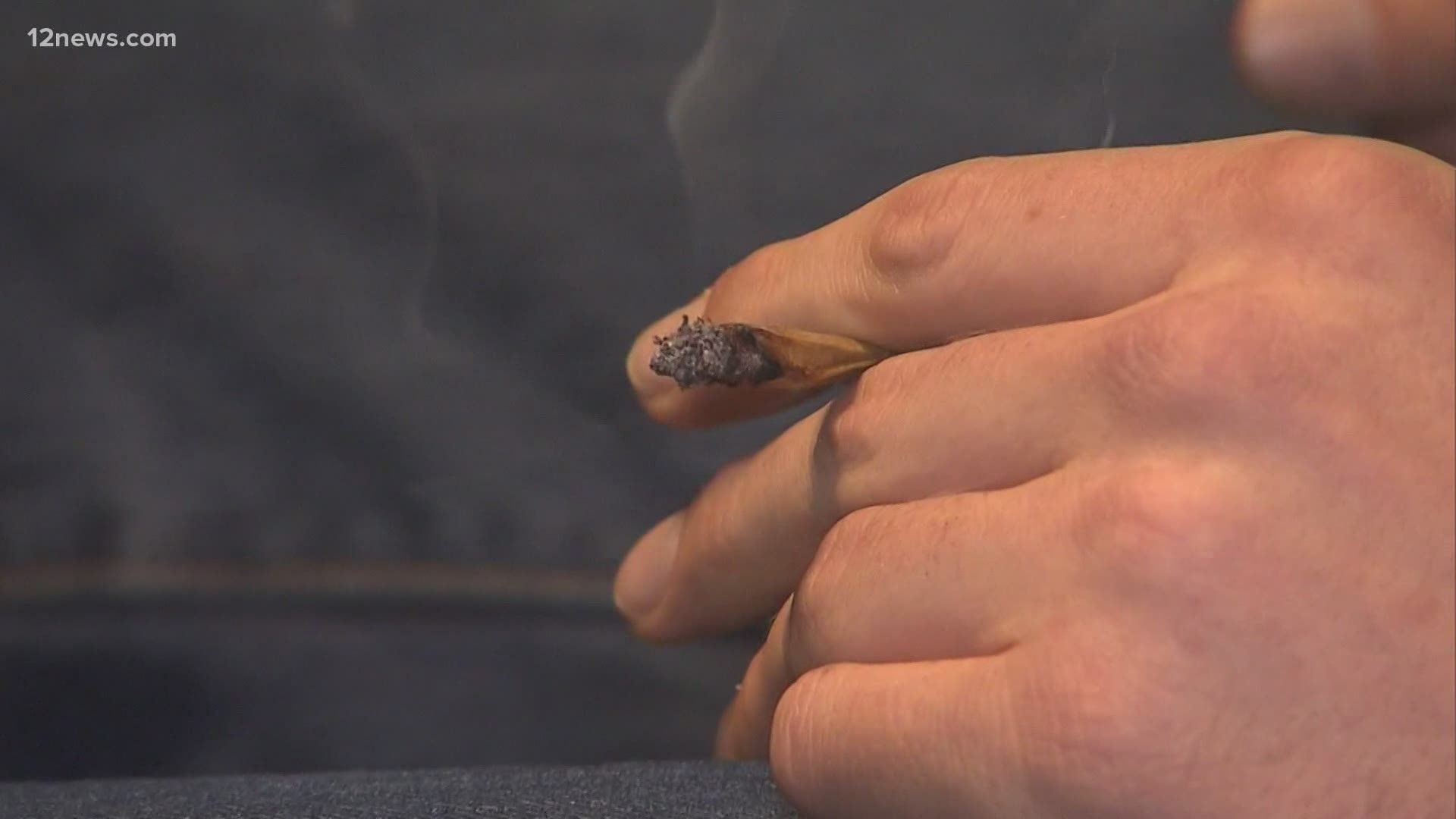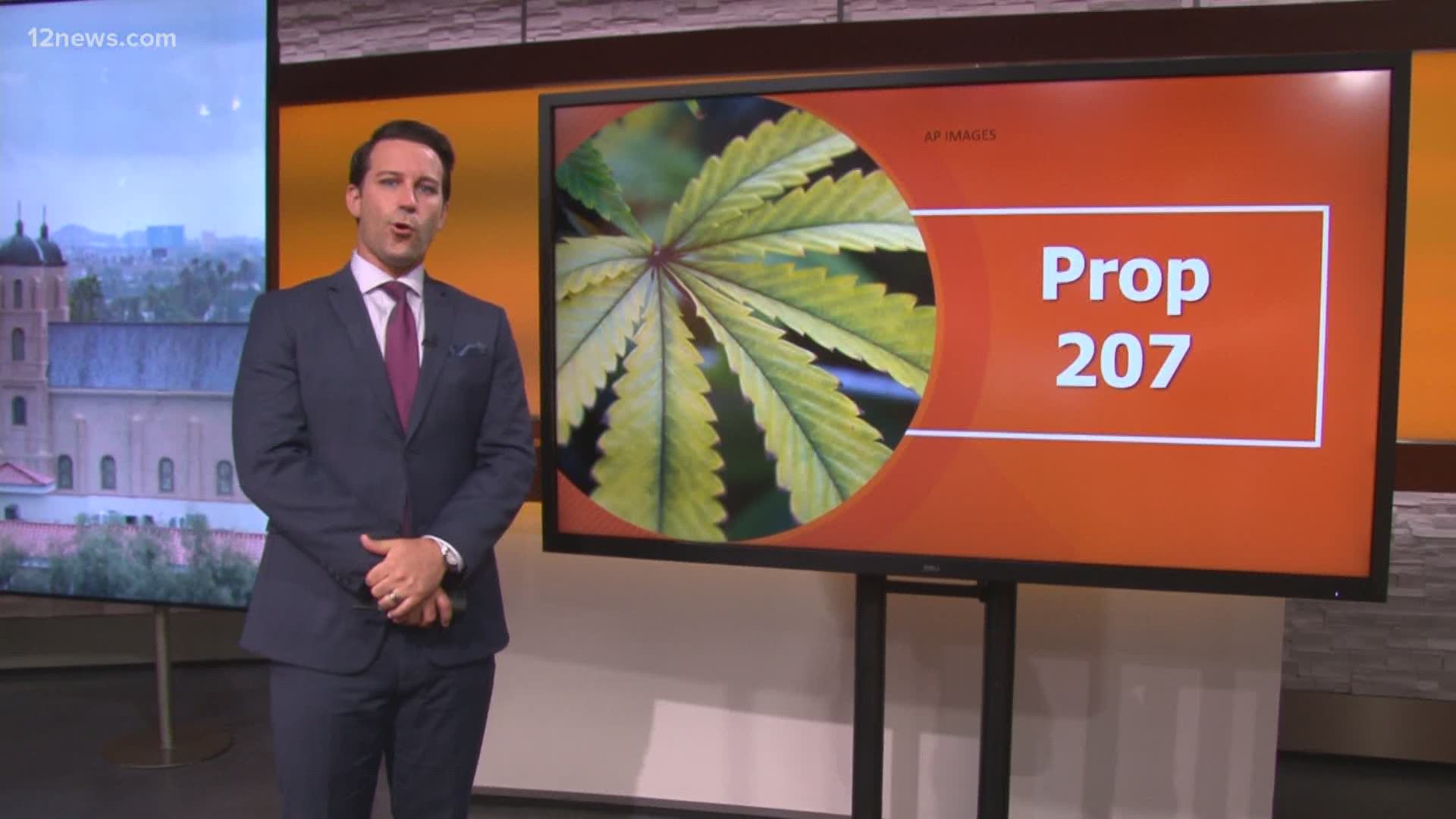ARIZONA, USA — Recreational marijuana has made a step closer to being featured on the Arizona ballot. A denied injunction earlier this week pushed the "Smart and Safe Act" initiative forward as the election nears.
However, renewed push-back surfaced from the "Arizonans for Health and Public Safety" group about what it will mean for Arizona residents.
It has been a controversial topic for years but with nearly half a million signatures and counting, it'll likely be up to voters to legalize cannabis.
Gary Smith with the Arizona Cannabis Bar Association explained why the hot button issue has inched toward state ballots.
"What the initiative purposes to do is to open up non-medical use to adults 21 and over. A group of Arizona citizens ban together a few weeks ago and filed an injunction lawsuit aimed at trying to prevent the initiative from being on the ballot," Smith said.
A judge ruled against the lawsuit, however, AZHPS hoped a new appeal would keep it off the ballot for what they said in a statement is in the interest of public health.
"This isn't just straightforward legalization of marijuana for recreational use. This initiative is 17 pages of sweeping new laws. Voters have a right to know," AZHPS chairwoman Lisa James said.
If the appeal yields the same result as the trial court decision, it would allow voters to decide whether or not recreational use should be legal.
"If Smart and Safe passes, adults will be able to go into one of the existing dispensaries, or one of the yet to be created dispensaries because the act does permit for more licenses and they'll be able to go and partake and can possess one ounce or up to five grams of concentrate," Smith said.
Smith understood that non-medical marijuana might not be for everyone but points to the pandemic when it comes to 400,000-plus signatures for Proposition 207.
"Cannabis sales across the country since the pandemic began are up, I think that people are finding that it's soothing a lot of anxiety and agitation that comes from being in lock down," he added.
He added that one advantage would be the taxes that come with any taxable product and business.
"There's going to be a normalized sales tax rate on cannabis, in addition to a 16% excise tax. Money from the excise tax would be used to fund state agencies so there's a plus in it for the state," Smith said.
Those opposed to Proposition 207 expect a court decision before Aug. 21, which is the deadline for general election ballots to be printed.


